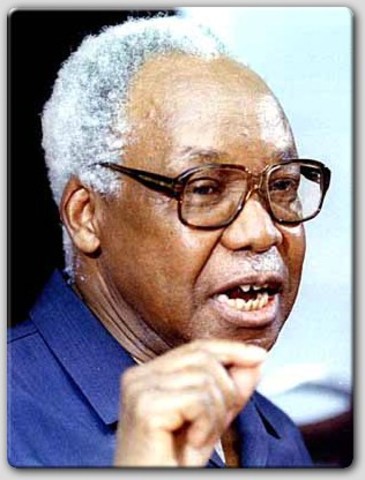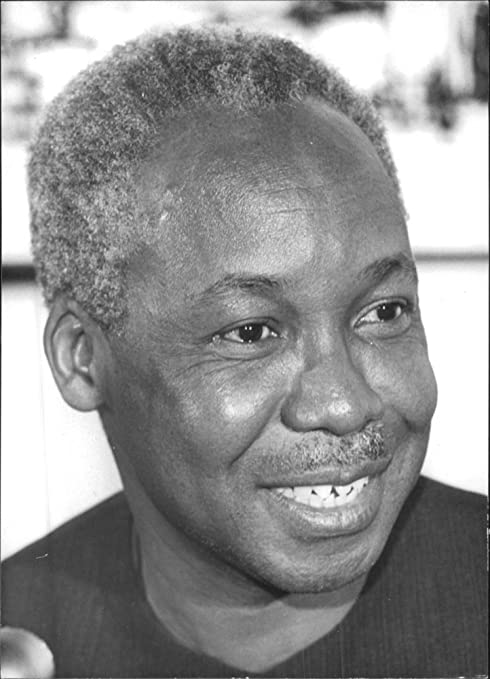

Nyerere was at the forefront of cooperating with fellow freedom fighters of Tanganyika that gained independence on December 9,1961 from the British colonialists
Dar es Salaam. The founding Father of the Nation, Mwalimu Julius Kambarage Nyerere, was born on April 13, 1922 in Butiama District, Mara Region and died on October 14, 1999.
However, the question is why should we celebrate the 100th anniversary of his death? That might be a big question that lingers in the heads of some Tanzanians, especially for those who had never seen him during his life time and do not know well the history of Tanzania.
However, the answer to that question cannot be only one. Mwalimu Nyerere was the first President of Tanganyika that later became Tanzania.
He was at the forefront of cooperating with fellow freedom fighters of Tanganyika that gained independence on December 9,1961 from the British colonialists.
He was also the one who initiated the Arusha Declaration and who voluntarily stepped down in 1985 while having a huge influence on Tanzanian society. Nyerere, who was the guru of Tanzanian politics, took part in exerting pressure over the successful return of the multiparty system in 1992, despite 80 percent of Tanzanians were rejecting it over the fear that it would have caused a civil war and fueled divisions within the society.
During his administration, Mwalimu Nyerere declared war against three enemies namely ignorance, diseases and poverty.
He fought for equality and human rights and believed in socialism and self-reliance.
He died at St Thomas Hospital in London, England, where he had gone to receive treatment.
Despite his death, Mwalimu Nyerere still lives on in the minds of many people in and outside the country.
African unity
The chairman of the ADC political party, Mr Hamad Rashid Mohamed, describes Mwalimu Nyerere as a person who intended to unite not only Tanzanians, but also to unite all Africans.
However, his dream of uniting the Africans was not achieved because he did not get the deserved cooperation from fellow African leaders.
Mr Hamad says that the fruit of the government of national unity seen in Zanzibar today coined through the thoughts of the fallen veteran politician, who all the time was trying to find the best way of uniting Zanzibaris. He remembers that there was a time Mwalimu Nyerere directed the current deputy Chairman of the CCM party, Mr Abdulrahaman Kinana, to hold talks with former Zanzibar President Salmin Amour about forming the government of national unity with the Opposition.
Nyerere said this because the results of 1995 and 2000 polls showed that the two parties of CCM and CUF were closely contested.
“Nyerere is a role model, he did not segregate people because in 1992 when my fellow party member and I went and hand over to him the CUF constitution, he told us to make efforts to unite and protect the Union. “However, he (Nyerere) was surprised by some of his CCM party fellow members who blamed him for meeting the Opposition, but he answered them that he did so because he was the Father of the Nation.”
Hamad Rashid advises that Tanzanians are supposed to live by deeds in the life of Nyerere by becoming tolerant, refusing segregation, fighting against corruption, oppression, embezzlement and misuse of power.
“Mwalimu allowed the freedom of expression and criticism that built a good foundation for democracy as during the mono party system we had a stronger opposition than now, where there are many political parties.
“Unfortunately today when a party decides what it wants, its members have nothing to do, fearing to go against their party’s decision,” he says.
Hamad says Nyerere was strict to his ministers who were doing against what they were supposed to do, he did not need their clarifications, but to give them letters of resigning their positions unlike now there has been no seriousness about holding someone accountable.
Valuing a woman
Veteran politician Getrude Mongela says valuing the woman and recognising her contribution is the perfect gift of honouring Nyerere, because, she explains, he recognized and respected the ideas given by the woman.
This is why, she says, in 1944 while studying at the Makerere University in Uganda he authored a book titled ‘the Freedom of Women’ whom he describe as vultures that are supposed to spread their wings in order to fly further. “Nyerere respected women who have built both Tanganyika and Tanzania, but I’m wondering why the history of women in this country is properly written? Today young men have changed and become power angry. They view us as unable to move with the pace of nation-building,” says Mongela.
Socialism and Self-Reliance
During his administration, Nyerere believed that a nation or someone cannot be free if they are not independent and that’s why he insisted on socialism and self-reliance. Experienced lecturer Prof Issa Shivji says there was a time Mwalimu sensed that the nation was on the brink of crumbling due the growing gap between the haves and the haves-not.
Due to that, he says Nyerere and his colleagues had to convene a meeting, whose result was the formation of Arusha Declaration that stood for equality and self-reliance.
“We started to see people’s property being nationalized as the aim was to strengthen the country’s economy and give relief to the downtrodden.
The foundations of Arusha Declaration were laid that all people are equal, this should continue to be in our minds because if poor people lose hope, there will be chaos,” he says.
Prof Shivji says Mwalimu had huge faith in Arusha Declaration even when some people started to say that it was out of date he himself said kicking it out was tantamount to creating a volcano that would erupt some day and it was a must to erupt.
International diplomacy
Nyerere was a believer of international relations, who made Tanzania the hub of freedom fighters from many African countries. He allowed the freedom fighters to stay in the country and receive training including carrying out their liberation struggles from Tanzania.
Journalist Abubakar Liongo says Nyerere wanted to see young men and women, who were fearless and inquisitive, but in the past few years, he adds, anyone who wanted to do that was taken to task.
As Tanzanians, Liongo says, we are supposed to get back on the right track by emulating what Nyerere did.
The fear of relinquishing power
Mwalimu Nyerere should be a role model to different leaders in and outside the African continent because of his action of voluntarily stepping down in1985 while having a huge influence on society.
Many African countries are in chaos because leaders of those countries have either refused to stand down or they have changed their constitutions in order to keep on staying in power.
To Nyerere, that was not so. He planned to step down in 1980, but he was asked to continue to lead the country until 1985 when he voluntarily did so while joking that some people wanted him to keep staying in power so that they could continue to protect their ‘interests.’
Manyara Regional Commissioner Makongoro Nyerere, who is a son of Mwalimu Nyerere, says his father has already shown the example of voluntarily stepping down and that there is no reason for people to be afraid of their fates when a certain leader leaves.
“Today Mangula is no longer a leader within CCM as Kinana has replaced him, but still some people are worried because they were benefiting. Those are mere worries, you should not be afraid of the presence of someone. Our country must be led under the foundations laid by the founders of our nation,” says Mr Makongoro.
“I understood my late father very well when he told me about his argument that he would step down in 1980, but some people were opposing because they did not want to lose their interests. Even myself wanted to continue to be called the son of president instead of the son of Mwalimu, although I was not paid any salary,” he says. Makongoro adds that he is benefiting greatly from the good deeds of his father because he now travels to different countries to receive prizes resulted from the work of Mwalimu Nyerere.
“He was a good person, who stood for human dignity, he revered humanity, if he discovered that you were not understood, he would not stay near you. Nyerere saw how his mother suffered and how the Zanaki people despised women and he started to speak much earlier until when he authored a book.
“There were certain good things that he foresaw, but he failed to implement them, he failed to move to Dodoma, he failed to construct Rufiji Hydrpower dam that is currently under construction, it is a good tradition to make a peaceful transition of power that should be maintained,” said Makongoro.
Respecting the Constitution
Nyerere was very strict to the people who manipulated the Constitution as he wanted its foundations to be followed and respected.
He was open to say that African countries were leading in producing many dictators who neglected the constitutions of their countries because they were feared.
Joseph Butiku, director of the Mwalimu Nyerere Foundation, says for many years there have been problems in leaderships because people’s rights, constitutions and laws are not respected and that’s why Mwalimu Nyerere took part in establishing a leadership college.
He says he remembers when Mwalimu told him that a leader is supposed to have two hearts, one should look like soot and the other should look whitish like milk.
Democracy
Although Nyerere spearheaded the growth of democracy in the country, he was opposed to the tendency of some people to keep mum over the breach of democratic foundations laid by people with leadership responsibility. Veteran politician Stephen Wasira says during the fifth phase government people were murmuring instead of speaking and media houses were not free.
Due to that, Mr Wasira called upon the nation to continue to follow the good foundations laid by Mwalimu Nyerere.
